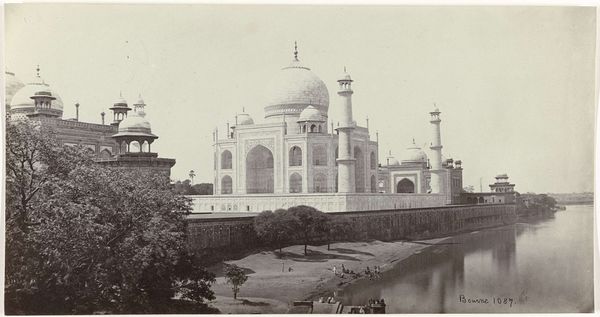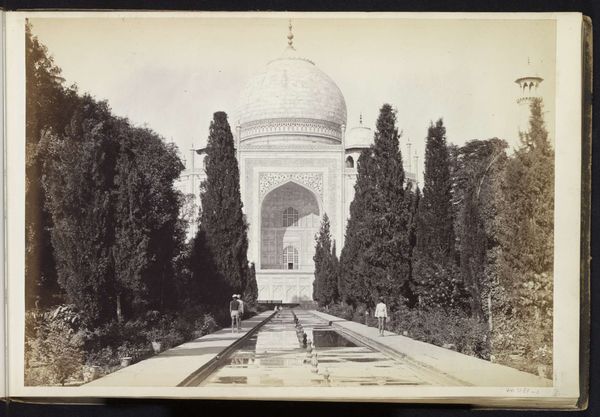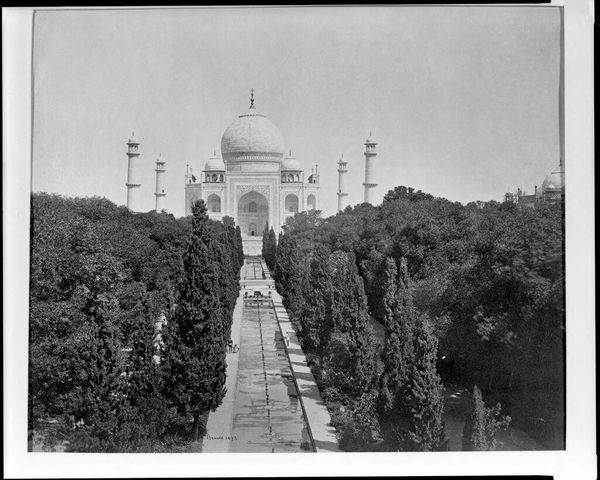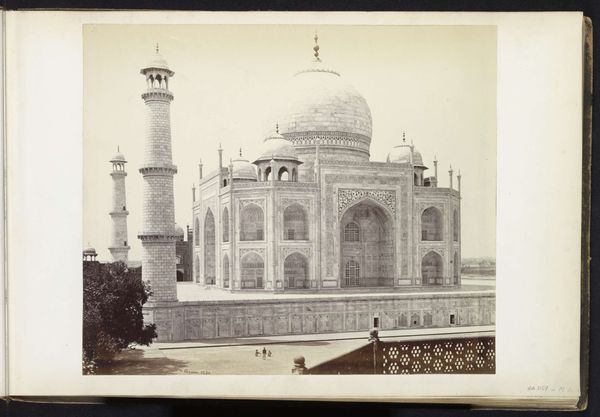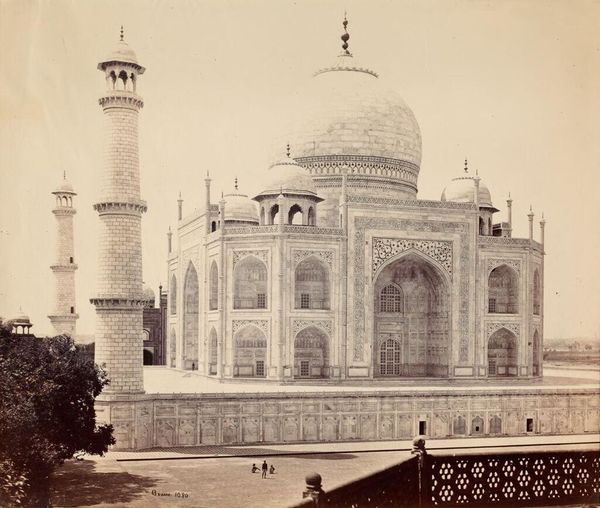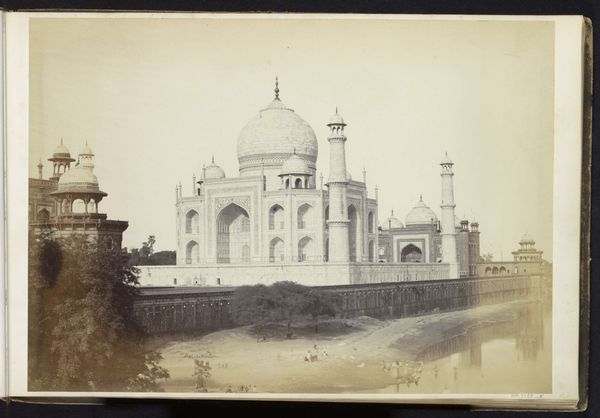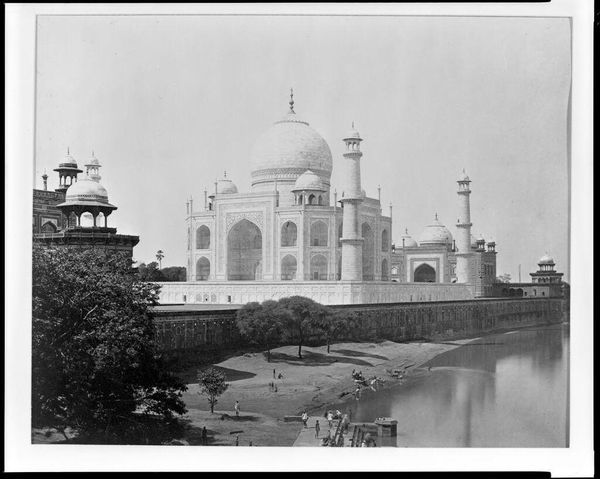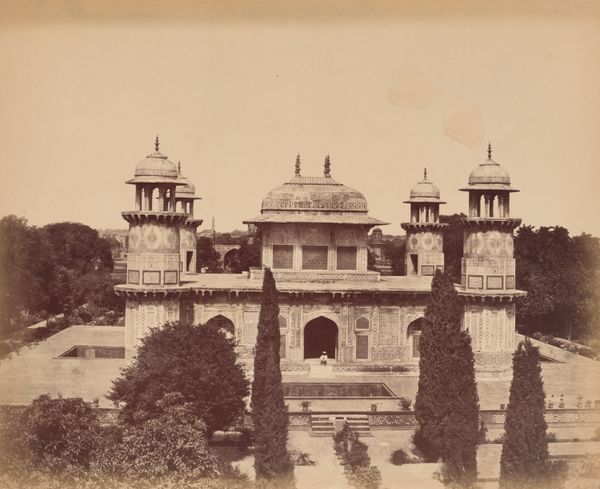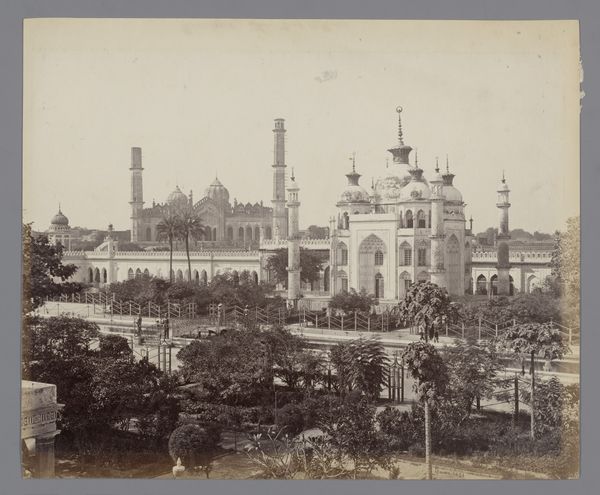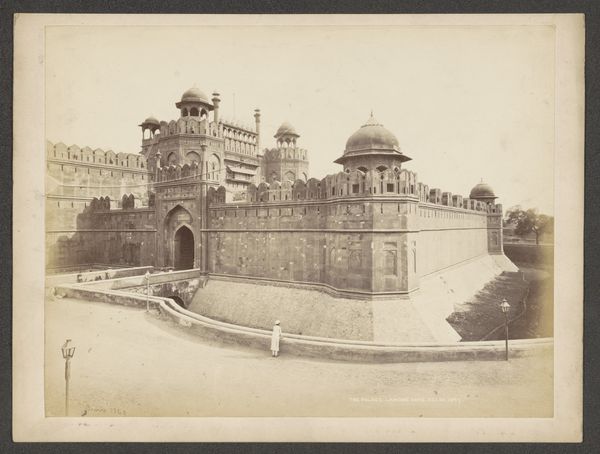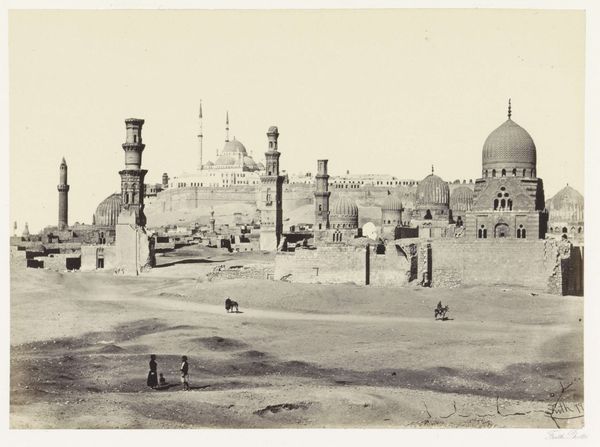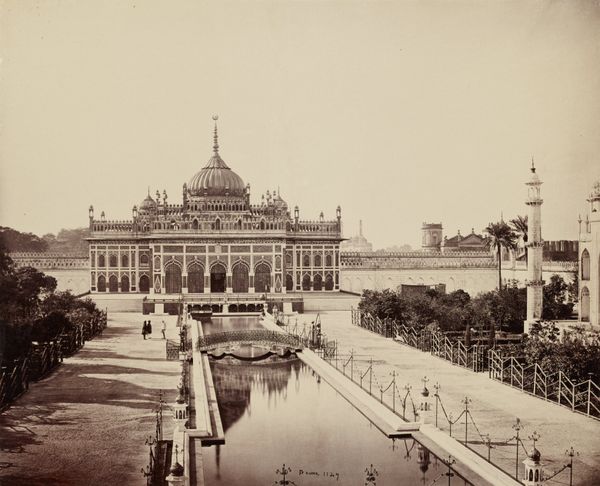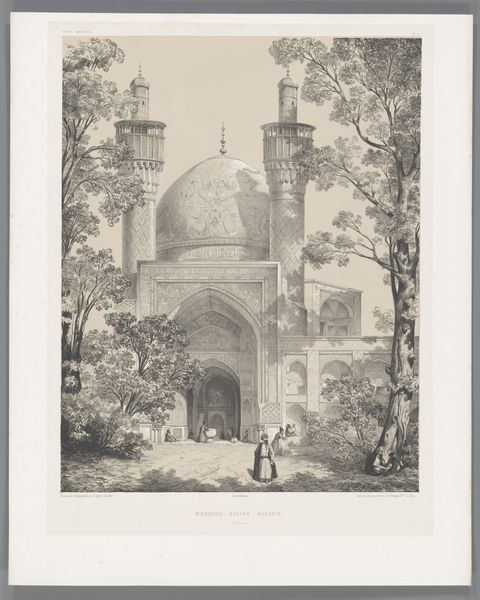
photography, gelatin-silver-print
#
landscape
#
photography
#
gelatin-silver-print
#
monochrome photography
#
line
#
cityscape
#
islamic-art
Dimensions: height 236 mm, width 288 mm
Copyright: Rijks Museum: Open Domain
This photograph of the Taj Mahal in Agra, India, was taken by Samuel Bourne in the 19th century. The processes involved in its creation were highly specialized. Bourne wasn't just pointing and shooting; he was a master of the wet collodion process, requiring portable darkroom equipment to coat, sensitize, expose, and develop his glass plate negatives on location. The albumen print gives the image its distinctive sepia tone and smooth surface, a testament to the chemical processes at play. The making of this photograph required a deep understanding of chemistry and optics, a craft in itself. Bourne’s photographs were not merely artistic endeavors. They played a significant role in shaping Western perceptions of India, feeding into the colonial gaze. Images like these were commodities, bought and sold, contributing to the visual economy of empire. Ultimately, understanding the photograph involves appreciating the labor and materials that went into its making, and considering its social and cultural implications.
Comments
No comments
Be the first to comment and join the conversation on the ultimate creative platform.

